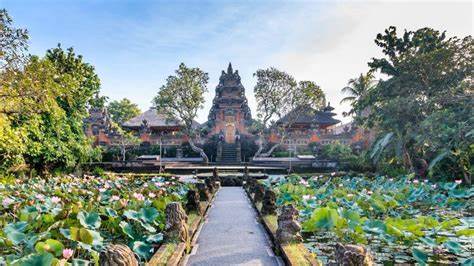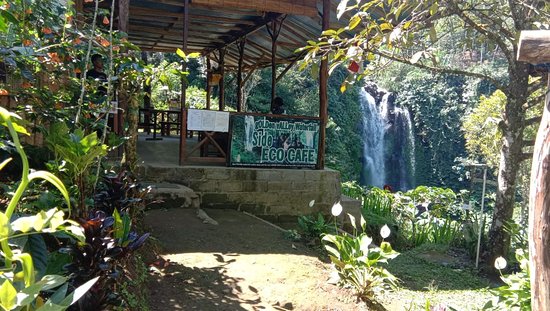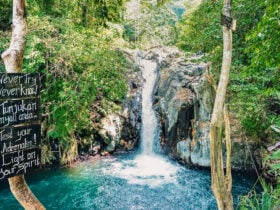Discovering Eco-Tours and Sustainability Workshops in Ubud
Eco-Tours and Sustainability Workshops Ubud, Bali’s cultural and spiritual hub, has gained a reputation not only for its rich arts and vibrant traditions but also as a center for eco-tourism and sustainable living. Known as Bali’s “green heart,” Ubud is home to a growing community of environmental activists, eco-conscious businesses, and educational workshops dedicated to promoting sustainability. From organic farms to permaculture gardens and eco-friendly resorts, Ubud provides an inspiring array of eco-tours and sustainability workshops that allow travelers to explore the island’s natural beauty while learning how to reduce their environmental impact.
This article delves into the eco-friendly experiences Ubud offers, highlighting some of the most engaging eco-tours, permaculture courses, and sustainability workshops that can help visitors connect with nature and gain a deeper understanding of Bali’s environmental challenges and solutions.
1. Why Eco-Tourism and Sustainability Matter in Ubud

With its lush rice terraces, tropical forests, and rivers, Ubud provides an ideal setting for eco-tourism activities that foster a connection with nature. However, as Bali’s tourism industry has grown, so have the environmental challenges, including waste management issues, water scarcity, and land degradation. Eco-tours and sustainability workshops aim to address these issues by educating locals and visitors on sustainable practices and the importance of environmental stewardship.
Eco-tourism activities in Ubud not only provide enriching experiences for travelers but also help support local communities, preserve Bali’s natural resources, and promote sustainable livelihoods. Through hands-on workshops, guided eco-tours, and permaculture courses, visitors can learn how local communities are working to protect Bali’s unique environment and take valuable lessons home with them.
2. Top Eco-Tours and Sustainability Experiences in Ubud

Ubud offers a range of eco-friendly activities, from farm-to-table experiences to bamboo workshops and permaculture design courses. Here are some of the best eco-tours and sustainability workshops that allow you to immerse yourself in Ubud’s green initiatives:
a. Green School Bali Tour and Bamboo Workshops
Green School Bali, located near Ubud, is a pioneering eco-school that has gained international acclaim for its innovative approach to education and sustainability. Known for its open-air bamboo architecture and commitment to green practices, the school provides tours that showcase its sustainability efforts, including composting toilets, solar panels, organic gardens, and the recycling center.
Green School also offers bamboo building workshops, where participants learn the basics of working with bamboo—a sustainable, locally sourced material. Through hands-on sessions, visitors can explore how bamboo is harvested, treated, and used to build resilient structures. These workshops highlight the versatility and sustainability of bamboo as an eco-friendly alternative to conventional building materials.
b. Kul Kul Farm Permaculture Courses
Adjacent to Green School, Kul Kul Farm offers comprehensive permaculture courses that teach participants how to design sustainable food systems, build healthy soil, and cultivate organic gardens. The farm provides short courses, such as “Introduction to Permaculture,” as well as extended programs for those who want to dive deeper into sustainable farming and eco-living.
During these workshops, participants learn about composting, water management, plant propagation, and food forest design. Kul Kul Farm also has a farm-to-table café where visitors can enjoy fresh, organic meals made with ingredients sourced from the farm itself. The experience provides a holistic understanding of permaculture principles and demonstrates how sustainable farming practices can benefit both people and the planet.
c. Bali Eco Tours’ Cycling and Village Tours
Bali Eco Tours offers cycling tours that allow visitors to explore Ubud’s scenic countryside while learning about local agricultural practices and sustainable living. These eco-tours take participants through rice terraces, small villages, and traditional farms, providing insight into the subak irrigation system—a centuries-old method used to irrigate Bali’s rice paddies sustainably.
Along the way, guides explain the importance of sustainable farming and how the Balinese honor the land through rituals and offerings. These tours support local communities by promoting low-impact tourism and providing an educational experience that showcases Bali’s agricultural heritage and environmental practices.
d. New Earth Cooking School
New Earth Cooking School in Ubud offers a unique culinary experience with a focus on plant-based, sustainable cooking. The school’s farm-to-table philosophy emphasizes using seasonal, locally sourced ingredients to create nutritious and eco-friendly meals. Through interactive cooking classes, participants learn how to prepare delicious plant-based dishes that reduce their carbon footprint.
New Earth Cooking School also teaches sustainable kitchen practices, such as minimizing food waste, composting, and choosing eco-friendly ingredients. The experience highlights the benefits of a plant-based lifestyle and offers practical tips for reducing food waste and supporting local food systems.
3. Hands-On Sustainability Workshops
In addition to eco-tours, Ubud offers hands-on sustainability workshops that cover various eco-friendly practices, from natural building to waste management. These workshops provide practical knowledge and encourage participants to adopt sustainable practices in their daily lives.
a. Waste-to-Wonder Workshops at Bali’s Eco Bins
Eco Bins in Ubud conducts workshops that focus on waste management and recycling, teaching participants how to turn everyday waste into useful products. From upcycling plastic into eco-bricks to making compost from organic waste, these workshops address Bali’s waste problem in creative ways.
Participants learn about Bali’s environmental challenges and discover how small actions, such as reducing plastic use and composting, can have a positive impact. The workshops also demonstrate simple ways to create eco-friendly items from household waste, making sustainability accessible and fun.
b. Natural Dyeing and Textile Workshops
Ubud has a growing community of artisans who specialize in natural dyeing and eco-friendly textiles. Workshops led by local artists teach participants how to use plants, roots, and leaves to create natural dyes. In these hands-on sessions, participants learn traditional dyeing techniques, including batik and ikat, while gaining insight into the importance of eco-friendly fabrics and dyes.
These textile workshops not only celebrate traditional Balinese craftsmanship but also raise awareness of the environmental impact of synthetic dyes and fast fashion. Participants leave with beautiful, handmade textiles and a greater appreciation for sustainable fashion.
4. Exploring Organic Farms and Eco-Friendly Cafés

Ubud is home to several organic farms and eco-friendly cafés that promote sustainable agriculture and offer delicious farm-to-table experiences.
a. Sari Organik Farm and Restaurant
Sari Organik is a well-known organic farm and restaurant located in the rice fields of Ubud. The farm grows a variety of organic vegetables, herbs, and fruits, which are used in the restaurant’s seasonal dishes. Visitors can tour the farm to learn about organic farming practices, enjoy a farm-fresh meal, and take in the beautiful views of the surrounding rice paddies.
Sari Organik emphasizes sustainable agriculture and supports local farmers by sourcing fresh ingredients from nearby farms. The experience offers a taste of Bali’s organic produce while showcasing the importance of sustainable farming in supporting both health and the environment.
b. Moksa Plant-Based Restaurant & Permaculture Garden
Moksa is an eco-conscious, plant-based restaurant in Ubud that operates its own permaculture garden. The restaurant offers vegan and vegetarian dishes made from seasonal, organic ingredients grown on-site. Guests can tour the permaculture garden and learn about sustainable gardening practices, including composting, natural pest control, and water conservation.
Moksa’s commitment to sustainable dining extends to its waste management practices, with efforts to minimize food waste and recycle materials. The restaurant provides a comprehensive farm-to-table experience, allowing visitors to enjoy nutritious meals while supporting sustainable food systems.
5. Tips for Sustainable Travel in Ubud
To make the most of your eco-tourism experience in Ubud, here are a few tips for sustainable travel:
- Support Local Eco-Friendly Businesses: Choose accommodations, restaurants, and tour operators that prioritize sustainability and environmental responsibility.
- Minimize Plastic Use: Bring a reusable water bottle and tote bag to reduce plastic waste, as Bali has limited waste disposal options.
- Respect Nature and Local Customs: Practice responsible tourism by respecting natural habitats, cultural sites, and local customs.
- Engage with Local Communities: Many eco-tours and workshops in Ubud are organized by local businesses that depend on community support. Engaging with local communities allows you to learn more about Bali’s environmental challenges and contribute to positive change.
- Practice What You Learn: Take the lessons learned from eco-tours and sustainability workshops home with you. Simple actions like composting, reducing plastic use, and supporting local food sources can make a difference in your own community.
Ubud’s eco-tours and sustainability workshops provide a unique opportunity to experience Bali’s natural beauty while learning how to live in harmony with the environment. Through hands-on activities, guided tours, and workshops, visitors can connect with Bali’s green initiatives, discover sustainable practices, and contribute to the preservation of the island’s natural and cultural heritage.
Whether you’re interested in permaculture, eco-friendly construction, or sustainable cooking, Ubud’s eco-tourism offerings allow you to explore Bali’s landscapes and embrace a greener way of life. The lessons and inspiration gained from these experiences extend far beyond Bali, encouraging a more conscious approach to travel and a deeper appreciation for our planet.










Leave a Review